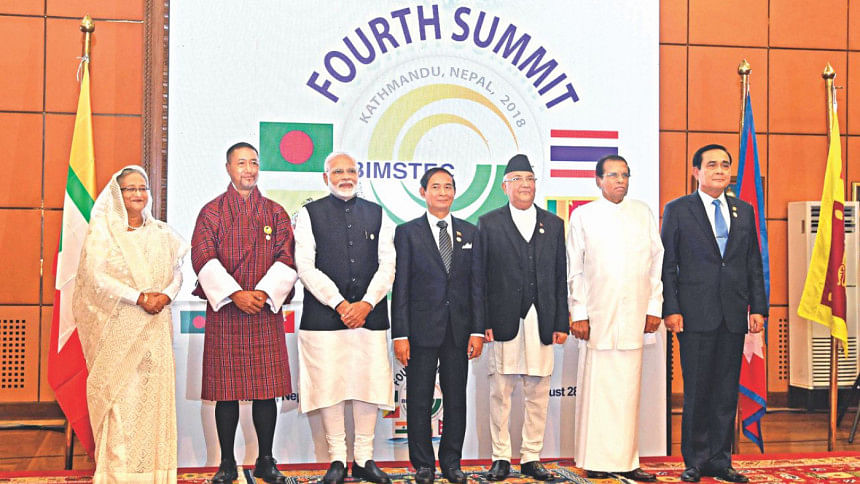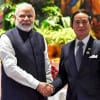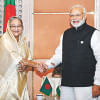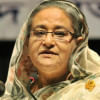Bimstec Summit: Leaders agree on regional power grid

The fourth Bimstec Summit concluded in Kathmandu yesterday with the member states inking a deal for cross-country energy grid interconnection and reaffirming strong commitment to working out a comprehensive approach to combat terrorism.
In the two-day summit, Bimstec leaders agreed to turn the Bay of Bengal region peaceful and prosperous by building common strengths through collective efforts.
They also agreed to make the organisation a dynamic, effective and result-oriented body for intensifying regional cooperation, alleviating poverty and promoting connectivity, energy and free trade.
The summit ended with the signing of a Memorandum of Understanding (MoU) on establishing a Bimstec Grid Interconnection to enhance energy cooperation among the seven member states -- Bangladesh, Bhutan, India, Myanmar, Nepal, Sri Lanka and Thailand.
The foreign ministers of the countries signed the deal, which is expected to pave the way for buying and selling electricity among Bimstec members once the cross-country energy grids will be put in place.
Diplomatic sources said the MoU would open the door for energy cooperation among the member states of South Asia and South East Asia and would also facilitate the promotion of efficient, economic, and secure operation of power system through the development of regional electricity networks.
Bangladesh Prime Minister Sheikh Hasina, Bhutan Interim Government Chief Adviser Lyonpo Tshering Wangchuk, Indian Prime Minister Narendra Modi, Myanmar President Win Myint, Nepalese Prime Minister KP Sharma Oli, Sri Lankan President Maithripala Sirisena and Thai Prime Minister Prayut Chan-o-cha attended the summit of the Bay of Bengal Initiative for Multi-Sectoral Technical and Economic Cooperation (Bimstec).
At the closing session, KP Sharma Oli presented an 18-point draft of the Kathmandu Declaration, which was adopted unanimously.
It included cooperation in areas such as agricultural technology exchange, gradual reduction of climate change impact, boosting trade and investment, blue economy, mountain economy, tourism, cultural cooperation and people-to-people contact.
The Nepalese PM also handed over the chairmanship of the grouping to the Sri Lankan president.
Acknowledging that enhanced inter-linkages and inter-dependence within the economies and societies of the Bimstec member states provide greater opportunity to advance regional cooperation, the summit underlined the importance of multidimensional connectivity for economic integration and shared prosperity.
The declaration acknowledged the importance of trade and investment as one of the major contributing factors for fostering economic and social development in the region.
The Kathmandu Declaration deplored terrorist attacks in all parts of the world, including in Bimstec countries, and strongly condemned terrorism in all its forms.
"Affirm that the fight against terrorism should target not only terrorists, terror organisations and networks but also identify and hold accountable States and non-State entities that encourage, support or finance terrorism, provide sanctuaries to terrorists and terror groups and falsely extol their virtues," the Declaration said.
The Bimstec member states reiterated their strong commitment to combat terrorism and called upon all countries to devise a comprehensive approach in this regard which should include preventing financing of terrorists and terrorist actions from territories under their control, blocking recruitment and cross-border movement of terrorists, countering radicalisation, tackling misuse of internet for purposes of terrorism and dismantling terrorist safe havens.
The summit agreed to expedite the conclusion of Bimstec Convention on Mutual Legal Assistance in Criminal Matters and called upon the member states for its early ratification. It also expressed satisfaction that many member states have ratified the Bimstec Convention on Cooperation in Combating International Terrorism, Transnational Organized Crime and Illicit Drug Trafficking.
Besides, the summit agreed to establish seamless multi-modal transportation linkages and smooth, synchronised and simplified transit facilities through the development, expansion and modernisation of highways, railways, waterways, sea routes and airways in the region.
It was also decided to speed up the efforts to conclude the Bimstec Coastal Shipping Agreement and the Bimstec Motor Vehicle Agreement as early as possible taking into account the special circumstances and needs of the member states.
Additionally, the grouping decided for an early conclusion of Bimstec Free Trade Area (FTA) negotiations, and directed the Bimstec Trade and Economic Ministerial Meeting and its subsidiary bodies, including the Trade Negotiating Committee, to expedite finalisation of all related agreements of the Bimstec FTA as early as possible.
The summit also called for exploring the possibility of establishing a Bimstec development fund with voluntary contributions from the member states. The fund would be utilised for research and planning of Bimstec and financing of projects, and other activities of the regional organisation, according to the Kathmandu Declaration.

 For all latest news, follow The Daily Star's Google News channel.
For all latest news, follow The Daily Star's Google News channel. 








Comments